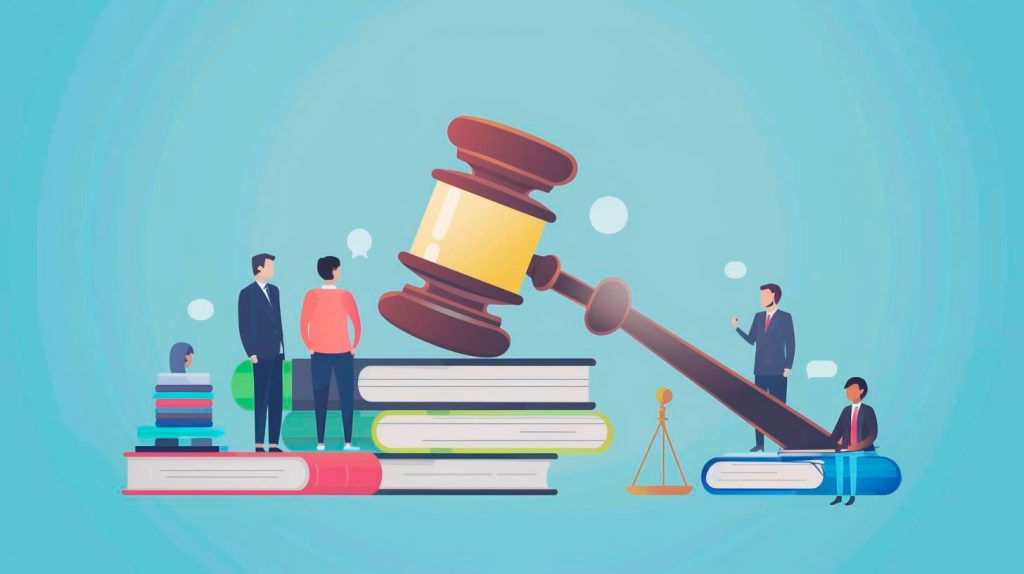
Steps to Take if You Have a Wage Garnishment on Your Credit Report
What is Wage Garnishment?
Wage garnishment is a legal process in which a creditor obtains a court order to deduct money from your paycheck to repay a debt that you owe. This can happen if you have failed to repay a loan, credit card debt, or other financial obligations. A wage garnishment can severely impact your financial stability and make it difficult to meet your basic needs.
Steps to Take if You Have a Wage Garnishment
1. Review the Garnishment Notice
The first step to take if you have a wage garnishment on your credit report is to carefully review the garnishment notice. This notice should provide information about the creditor, the amount of the debt, and the legal steps that have been taken to garnish your wages. Understanding the details of the garnishment can help you determine the best course of action to address the issue.
2. Seek Legal Advice
It is important to seek legal advice from a qualified attorney who specializes in debt collection and wage garnishment. An experienced attorney can review your case, provide guidance on your legal rights, and help you explore options to stop or reduce the wage garnishment. Legal representation can be crucial in negotiating with creditors and protecting your rights.
3. Negotiate a Settlement
One possible option to address a wage garnishment is to negotiate a settlement with the creditor. This may involve negotiating a repayment plan, a lump-sum payment, or a reduced amount to settle the debt. A skilled attorney can help you negotiate with the creditor to reach a settlement that is favorable to you and helps resolve the wage garnishment issue.
4. File for Bankruptcy
If you are facing overwhelming debt and cannot afford to repay the creditor, filing for bankruptcy may be a viable option to stop a wage garnishment. Bankruptcy can provide relief from creditors, stop wage garnishments, and give you a fresh start to rebuild your financial health. Consulting with a bankruptcy attorney can help you understand your options and determine if bankruptcy is the right solution for your situation.
5. Monitor Your Credit Report
After addressing a wage garnishment on your credit report, it is essential to monitor your credit report regularly to ensure that the garnishment has been removed. Keeping track of your credit report can help you detect any errors or inaccuracies that may affect your credit score. By monitoring your credit report, you can take steps to improve your credit and financial standing.
Dealing with a wage garnishment on your credit report can be a stressful and challenging experience. By taking proactive steps to address the issue, such as seeking legal advice, negotiating a settlement, or filing for bankruptcy, you can work towards resolving the wage garnishment and improving your financial situation. Remember to monitor your credit report regularly to ensure that the garnishment has been removed and take steps to rebuild your credit. By taking action and seeking guidance from legal professionals, you can navigate through the process of dealing with a wage garnishment effectively.
The Impact of Wage Garnishments on Credit Scores
According to a recent study, wage garnishments are one of the leading causes of poor credit scores among consumers. In fact, individuals with wage garnishments on their record are more likely to have lower credit scores and higher levels of debt compared to those without wage garnishments.
How Wage Garnishments Affect Credit Scores
Wage garnishments are considered a derogatory mark on an individual’s credit report, which can lower their credit score significantly. This negative mark can stay on the individual’s credit report for up to seven years, making it difficult for them to obtain credit and secure favorable interest rates.
Additionally, wage garnishments may indicate to potential lenders that the individual has had trouble managing their finances in the past, leading to a higher perceived risk of default. This can result in higher interest rates on loans and credit cards, as well as difficulty securing new lines of credit.
The Long-Term Impact of Wage Garnishments
Aside from the immediate impact on credit scores, wage garnishments can also have long-term effects on an individual’s financial health. With a lower credit score, individuals may find it challenging to secure loans for major purchases such as a home or car, or even qualify for rental agreements.
Moreover, a lower credit score can also affect employment opportunities, as some employers may use credit scores as part of their hiring process. This can further restrict the individual’s ability to increase their income and improve their financial situation.
Seeking Legal Assistance
If you are facing wage garnishments or struggling with overwhelming debt, it is essential to seek legal assistance from a qualified attorney. A skilled lawyer can help you understand your rights and options when dealing with creditors and wage garnishments, and work towards a resolution that protects your financial future.
Additionally, a lawyer can help you explore alternatives to wage garnishments, such as debt settlement or bankruptcy, that may provide a more sustainable solution to your financial challenges.
Wage garnishments can have a significant impact on an individual’s credit score and overall financial well-being. By understanding the effects of wage garnishments and seeking legal assistance when needed, individuals can take proactive steps to protect their financial future and work towards a brighter financial outlook.
Understanding Wage Garnishments
What is Wage Garnishment?
Wage garnishment is a legal procedure in which a creditor obtains a court order requiring an employer to withhold a certain amount of an employee’s wages to satisfy a debt. The amount that can be garnished varies depending on the type of debt and state laws. Common reasons for wage garnishments include unpaid taxes, child support, student loans, and other outstanding debts.
It’s important to note that not all debts can be garnished from wages. For example, federal law limits the amount that can be garnished for child support or alimony to up to 50% of disposable earnings. Understanding these limitations can help individuals protect their income.
Benefits of Wage Garnishment
- Enforcement of Court Orders: Wage garnishments help enforce court orders related to debts such as child support or alimony.
- Debt Repayment: Wage garnishments provide a structured way for individuals to repay their debts over time.
- Creditor Protection: Creditors are more likely to receive the money owed to them through wage garnishments.
Effects of Wage Garnishment
While wage garnishments can be beneficial in terms of enforcing debt repayment, they can also have negative consequences for employees. Some potential effects of wage garnishment include:
- Financial Hardship: Losing a portion of their income can put employees in a difficult financial situation.
- Employment Issues: Some employers may view wage garnishments negatively and it could affect an employee’s job prospects.
- Privacy Concerns: Employees may feel embarrassed or exposed by having their wages garnished.
Understanding the Legal Process
Wage garnishment laws vary by state, so it’s important to understand the specific regulations that apply in your area. Employers must follow strict guidelines when processing wage garnishments to ensure compliance with the law. Failure to do so can lead to legal repercussions.
Employees have rights when it comes to wage garnishments, including the right to receive advance notice of the garnishment and the right to challenge it in court. Seeking legal advice from a skilled attorney can help individuals navigate the wage garnishment process and protect their rights.
Wage garnishments can be a complex legal issue with significant implications for both employees and employers. Understanding the laws and regulations surrounding wage garnishments is essential for anyone involved in the process. By seeking legal advice and knowing their rights, individuals can navigate the challenges of wage garnishment with confidence.
How to Protect Your Credit Score from Wage Garnishments
While a wage garnishment can help creditors receive the money owed to them, it can have long-lasting effects on your credit score.
When your wages are garnished, it is a public record that can stay on your credit report for up to seven years, even after the debt has been paid off. This can make it difficult to obtain credit or loans in the future, as lenders may view you as a higher risk borrower. However, there are steps you can take to protect your credit score from the negative impacts of wage garnishments.
Understand Your Rights
It is important to know your rights when facing a wage garnishment. Federal law limits the amount that can be garnished from your paycheck to 25% of your disposable earnings, or the amount by which your weekly earnings exceed 30 times the federal minimum wage. Some states have even stricter laws that further limit the amount that can be garnished.
If you believe that the amount being garnished is incorrect or if you are facing extreme financial hardship, you may be able to challenge the wage garnishment in court. In some cases, you may be able to negotiate a payment plan with the creditor to avoid having your wages garnished.
Communicate with Creditors
Open communication with your creditors is key to protecting your credit score from the negative effects of a wage garnishment. If you are unable to pay your debts in full, reach out to your creditors to see if they are willing to work with you on a payment plan. Many creditors are willing to negotiate and may be open to reducing the amount owed or extending the repayment period.
By proactively communicating with your creditors and making timely payments, you can demonstrate your willingness to repay your debts. This can help mitigate the impact of a wage garnishment on your credit score.
Seek Legal Assistance
If you are facing a wage garnishment and are unsure of your rights or how to proceed, it may be beneficial to seek legal assistance. A knowledgeable attorney who specializes in debt relief can help you navigate the legal process, protect your rights, and find the best solution for your situation.
An attorney can review your case, negotiate with creditors on your behalf, and help you explore options such as debt settlement or bankruptcy if necessary. By seeking legal assistance, you can ensure that your rights are protected and take proactive steps to minimize the impact of a wage garnishment on your credit score.
Monitor Your Credit Report
Regularly monitoring your credit report is essential to protecting your credit score from the negative effects of a wage garnishment. By keeping a close eye on your credit report, you can quickly identify any inaccuracies or errors related to the wage garnishment and take steps to correct them.
It is also important to monitor your credit score and track any changes that occur as a result of the wage garnishment. By staying informed about your credit standing, you can take proactive steps to improve your credit score over time.
While facing a wage garnishment can be a challenging experience, it is possible to protect your credit score from the negative effects. By understanding your rights, communicating with creditors, seeking legal assistance, and monitoring your credit report, you can take proactive steps to mitigate the impact of a wage garnishment on your credit score.
Remember, your credit score is an important financial asset that can impact your ability to obtain credit, loans, and other financial opportunities. By taking steps to protect your credit score from wage garnishments, you can safeguard your financial future and work towards achieving your financial goals.













What if I’ve already paid off a wage garnishment? Will that help improve my credit score at all?
Man, I never realized how much of an impact a wage garnishment can have on your credit score. It’s crazy how one little thing can mess up your financial future.
Wage garnishments are serious and can definitely hurt your credit score. It’s important to communicate with your employer and creditors to try to find a solution before it gets to that point.
Having a wage garnishment can definitely have a negative impact on your credit score. It shows up as a public record on your credit report, which lenders can see and may affect their decision to lend you money.
Yo, I heard if you have a wage garnishment, it stays on your credit report for like seven years. Can anyone confirm that?
If your employer receives a court order for wage garnishment, they are legally required to comply. This can result in a portion of your wages being taken out before you even see them, which can impact your ability to pay bills and ultimately hurt your credit score.
Having a wage garnishment on your record can make it much harder to get approved for loans or credit cards since it signals to lenders that you have had trouble managing your finances in the past.
Oh man, I had a wage garnishment last year and it totally screwed up my credit score. It took forever to recover from that hit. Definitely not something you want to deal with!
Wait, so if I have a wage garnishment, does that mean my credit score is automatically gonna go down? How long does it take to bounce back from that?
So if I have a wage garnishment, does that mean I won’t be able to get approved for a mortgage or a car loan?